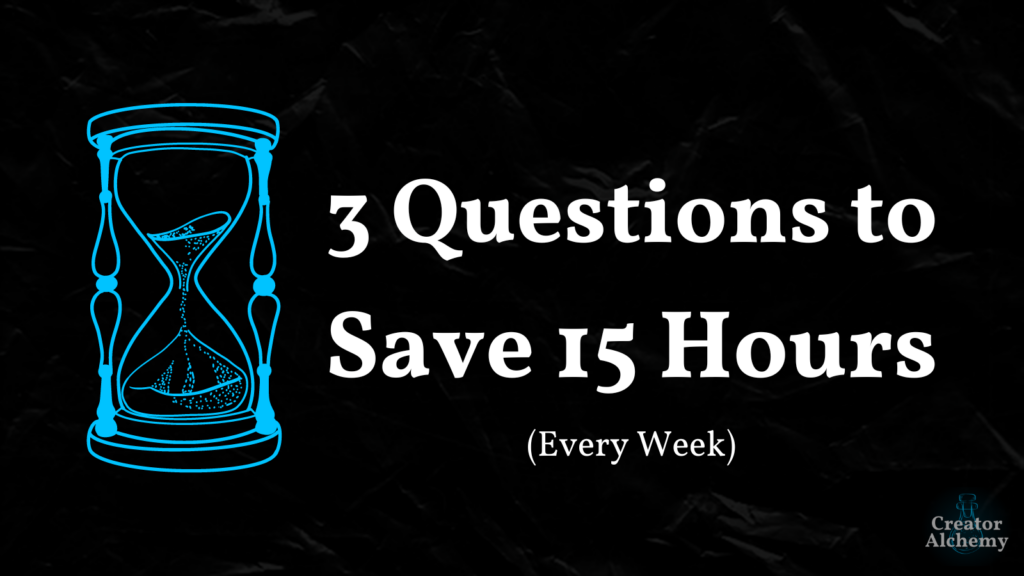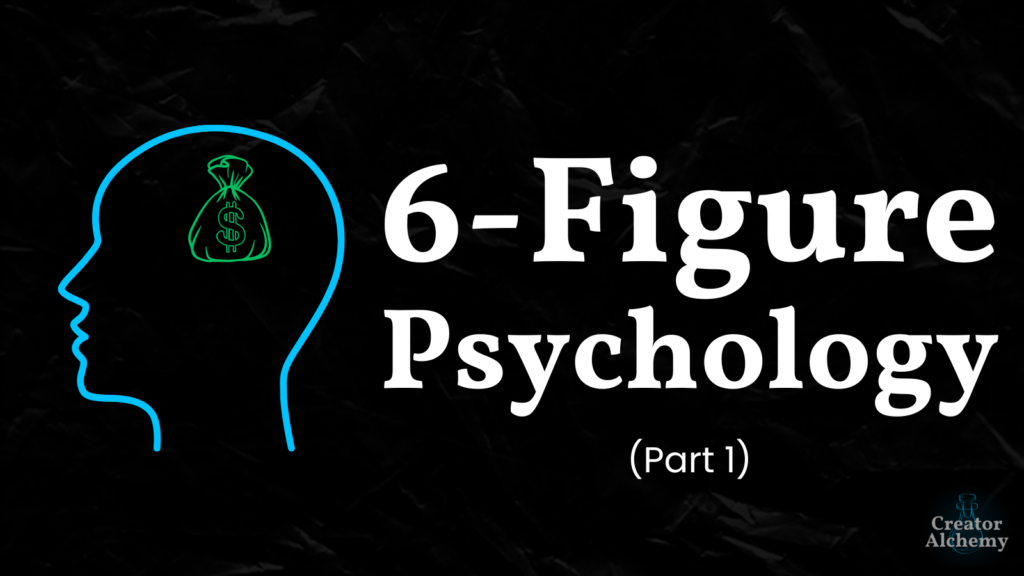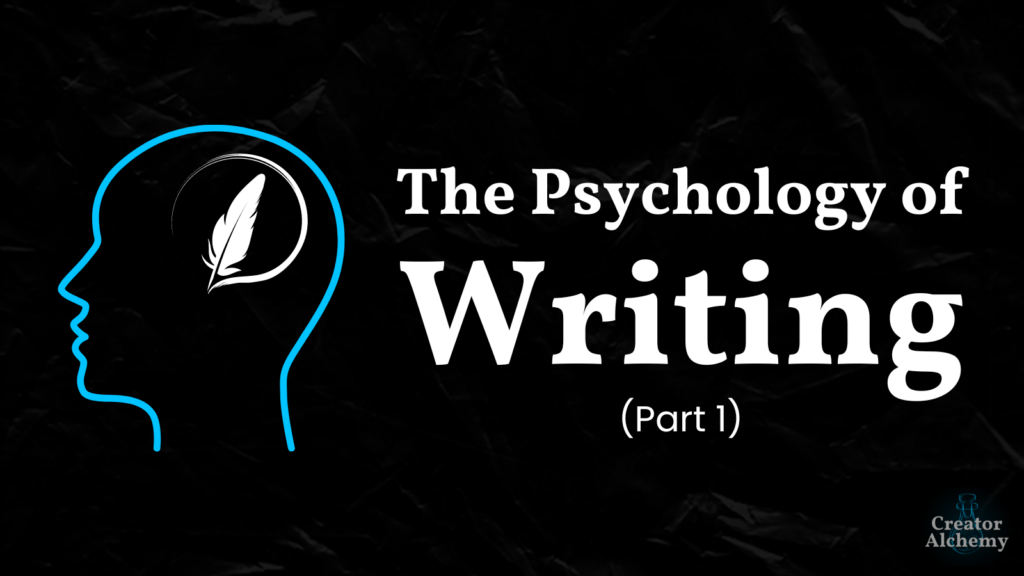I’m writing this in late June/early July.
Seven months ago, you wrote down what you wanted to accomplish this year…
We even went over some solid strategies to set you up for success (check out How to Set Yourself Up for Success in the Next Chapter of Life for a refresher).
So how are you doing?
- Did you give up when progress wasn’t fast enough?
- Did you abandon them 3 weeks into the year?
- Did life just get in the way over time?
Or are you still committed to them?
If you’re still committed to them and still making progress, you’re in the micro-minority, because damn-near everyone I see hasn’t stayed committed.
So if you’re not in the micro-minority who’ve stayed the course, that’s ok—this piece is written for you.
The biggest obstacles entrepreneurs tell me they struggle with are:
- “I don’t have enough time!”
- “I keep procrastinating!”
- “I feel stuck!”
There’s a direct link between these struggles and Mid-Year Regrets.
Because you haven’t lived up to your expectations of yourself and what you thought you would/should have achieved by now.
So today, we’re going to try to get you back on track, so you can use the second half of the year to finish strong.
•••
The Power of Commitment
In How to Set Yourself Up for Success in the Next Chapter of Life, you clarified six things:
- What are my priorities for this next chapter?
- What are the critical components I need to focus on to achieve them?
- What could get in my way, or has gotten in my way in the past?
- What do I need to do to overcome these obstacles?
- What is my plan moving forward?
- In one word, what is the theme for this next chapter of life?
Answering these questions should have given you everything you needed to succeed except one critical component: follow-through.
Follow-through, or lack thereof, is the ultimate deciding factor in success.
It doesn’t matter how much you know, how great of a plan you have, or how much money you invest in fancy tech that’s supposed to make it easier.
If you don’t follow through, you 1000% will not succeed.
There’s no surrogate for doing the work (despite what all the gurus selling “miracle in a box” courses claim).
Here’s the simplest mental model I’ve found that’s helped me actually follow through on things:
- Forget about goals.
- Forget about results.
- Forget about metrics.
Focus on commitments.
Ask yourself, What am I willing to commit to?
Specifically, What processes am I willing to commit to for the long-term?
Meaning what specific actions will you take, how will you build your routine aligned with facilitating them, and how will you build in systems to hold yourself accountable to ensure you follow through?
Let’s take a common example of a New Year’s resolution people struggle to commit to long-term: getting healthier or losing weight.
•••
Focus On Outcomes If You Want to Fail
Caveat: I’m speaking solely for myself, since I know weight loss is a complex topic.
Over the past 10 years, my weight slowly crept up to around 270lbs (122kg).
But in the past 7ish months, at the age of 35, I’ve lost 50lbs (23kg) and am now around 220lbs (100kg).
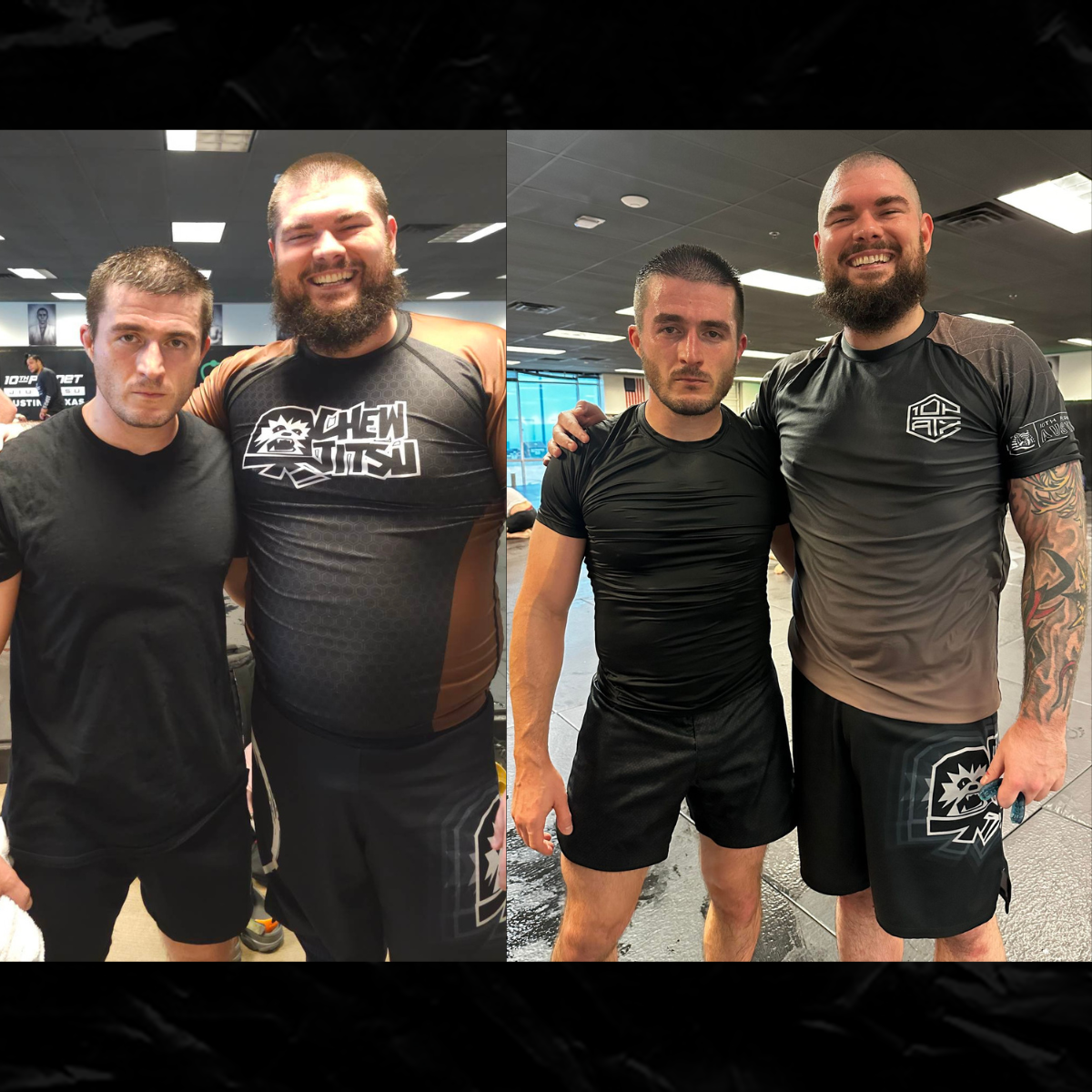
In the past, I focused on an outcome—losing weight—which was outside my control.
This time, I focused on a process—eating healthier—which was within my control.
Because I realized I didn’t “struggle with my weight.” I struggled with commitment.
So, I chose a process I could commit to long-term.
Because counterintuitively, if you obsess over results, you miss them—because you overlook the process.
Gurus will tell you to hyper-focus on results:
- Weigh yourself daily!
- Refresh your analytics constantly!
- Check your bank account balance first thing in the morning!
Whatever it takes to KEEP YOUR EYES ON THE PRIZE BECAUSE WHAT GETS MEASURED GETS MANAGED.
But this is actually a recipe for psychopathology—you’ll quickly develop maladaptive thought and behavior patterns (and most of those gurus do).
Because results—like any outcome—are outside your control. And spending your time, energy, and attention on things outside your control leads to feeling powerless, getting frustrated, and giving up.
I didn’t commit to losing weight (outcome). I committed to a way of eating (process) I could stick with long-term. Weight loss became the byproduct, not the thing I committed myself to doing.
Side Note: If you’re curious about how I eat, it’s “animal-based,” meaning I mostly eat grass-fed beef, pasture-raised eggs, and fruit (no grains, no processed stuff, no veggies that cause bloating). This isn’t nutrition advice. There’s a lot of bullshit claims and fake gurus out there—find what works for you, but this works for me.
But why do we struggle to commit to the right process?
Often, it comes down to what psychologists call the JND, or “just noticeable difference.”
Here’s what I mean…
•••
Thresholds and Compounding
I go more into this in The Lazy Way To Cut Out Processed Sugar, Without Noticing, but a JND is essentially the minimum amount of change it takes for you to notice a difference. If whatever you’re doing is below that threshold, you don’t notice it.
So how does the JND affect our ability to follow through on our commitments?
Simple: On a daily basis, the results of whatever we do aren’t noticeable. So it’s easy to procrastinate or minimize the importance of staying committed.
This is the tension between thresholds and compounding:
If we don’t notice progress (aka, cross a threshold), it’s easy to neglect that behavior, which prevents compounding from taking effect. But we typically only notice progress if we stick to it long enough for compounding to take effect.
Which is why finding a process you can commit to long-term—even if daily progress is invisible—so compounding can take effect, is critical for achieving real success.
Let’s say you want to write a book. If you skip writing today, it won’t make any meaningful difference. But if you continue to skip writing, in six months, you’ll have made zero progress. But if you committed to the process of writing 500 words a day, it wouldn’t feel like much on a day-to-day basis. But it would compound into having an 80,000-word manuscript in less than six months.
Let’s say you want to build a product. If you skip building for a day, it won’t make any meaningful difference. But if you continue to skip building, in six months, you’ll have nothing but a “great idea.” But if you committed to the process of building (coding, customer interviews, curriculum design, etc.), it wouldn’t feel like much on a day-to-day basis. But it would compound into having a solid MVP in the next six months.
Let’s say you want to eat healthier. If you eat junk food today, it won’t make any meaningful difference. But if you continue to eat junk food, in six months, you’ll be heavier, unhealthier, and have developed a hard-to-break habit. But if you committed to the process of eating healthier every meal, it wouldn’t feel like much on a day-to-day basis. But it would compound into becoming healthier, (likely) happier, and having developed an easy-to-maintain habit in six months.
Daily actions compound—for better or worse.
Your time horizon influences your success—focus on how your actions today will compound over time.
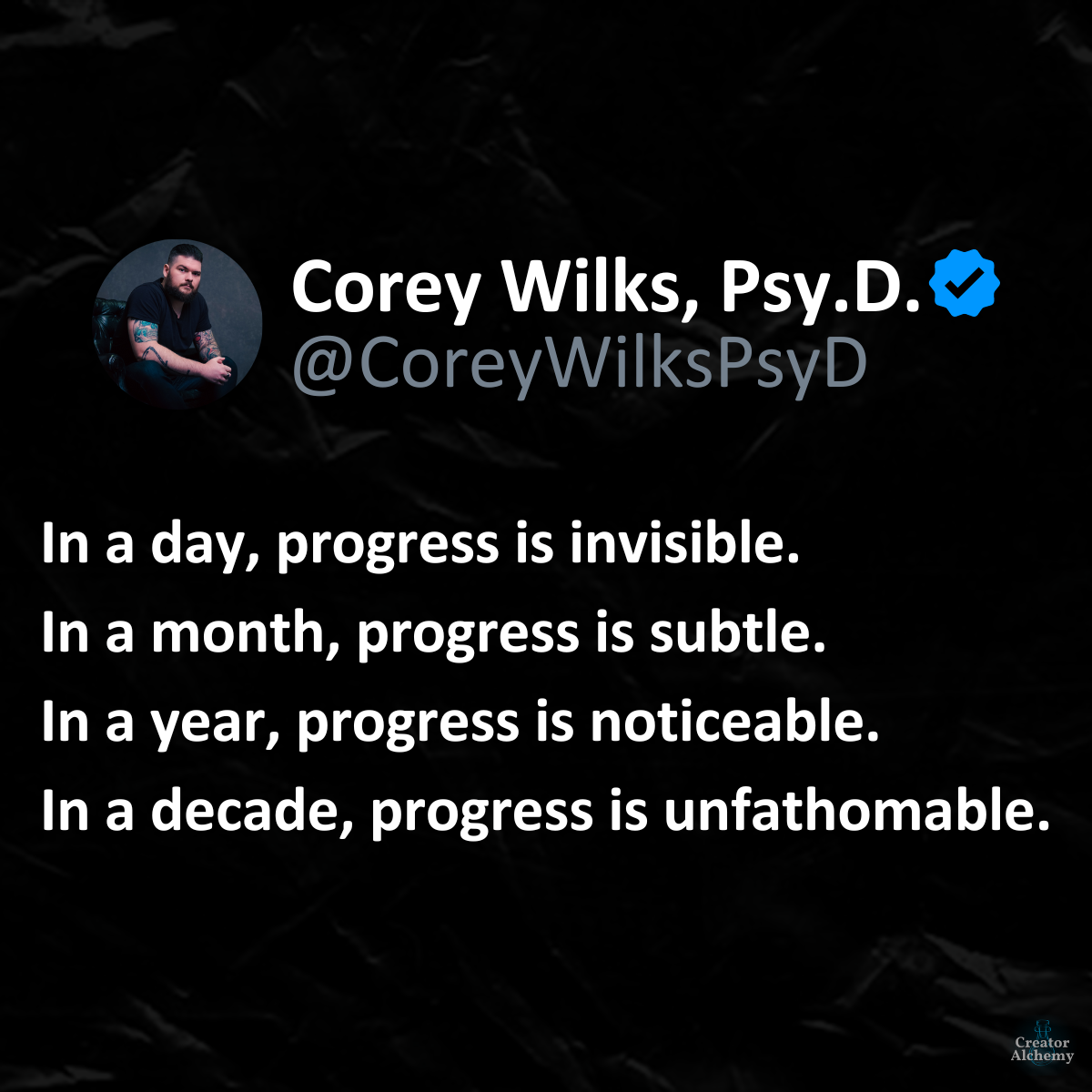
Like we talked about in Your Life Horizon: How to Make the Best Decisions Today for Your Best Life Tomorrow, the most successful people think in decades, not days.
It’s hard to see progress on a daily basis. But progress is only made on a daily basis.
In six months, what will your life look like compared to now if you committed to the process?
- Daily exercise.
- Daily journaling.
- Daily eating well.
- Daily writing habit.
- Daily posting your ideas.
- Daily practicing gratitude.
- Daily outreach and collaboration offers.
- Daily learning a new skill (coding, instrument, copywriting, speaking, etc.).
Today, progress will feel negligible. But if you committed to the process for the next six months, imagine what your life could look like.
•••
Final Thoughts
So rewinding it back to the beginning of the year…
- Maybe your New Year’s resolution was to lose weight.
- Maybe your New Year’s resolution was to write a book.
- Maybe your New Year’s resolution was to grow your business.
But because you didn’t see progress soon enough, or because you didn’t pick a process you could commit to long-term…
You skipped a day (negligible), then another day (subtle), then days turned into week turned into months of not committing to the process which prevented compounding to take effect.
So here you are, at the Mid-Year Slump with Mid-Year Regrets.
But there’s still time to course-correct if you’re willing to commit to the process.
So tell me, what process are you willing to commit to for the rest of the year?
- Not a metric.
- Not a result.
- Not a goal.
A process that’s within your control.
Shoot me a message (or tag me on LinkedIn or Twitter) with what it is—then shoot me another message in six months with an update. I’d love to celebrate with you.
Read Next: When you commit to the process, results are inevitable. Check out How to Make Success Inevitable (7 Skills Anyone Can Learn) for more strategies like this.
•••
P.S.
If you want customized help, apply for coaching now so we can work together to help you succeed on your terms and build a values-aligned life and business.
I’ve helped hundreds of entrepreneurs, creators, and leaders develop the strategies and systems to clarify what matters, overcome what’s standing in their way, and make meaningful progress toward building the life they want.
I’d love to help you do the same.

